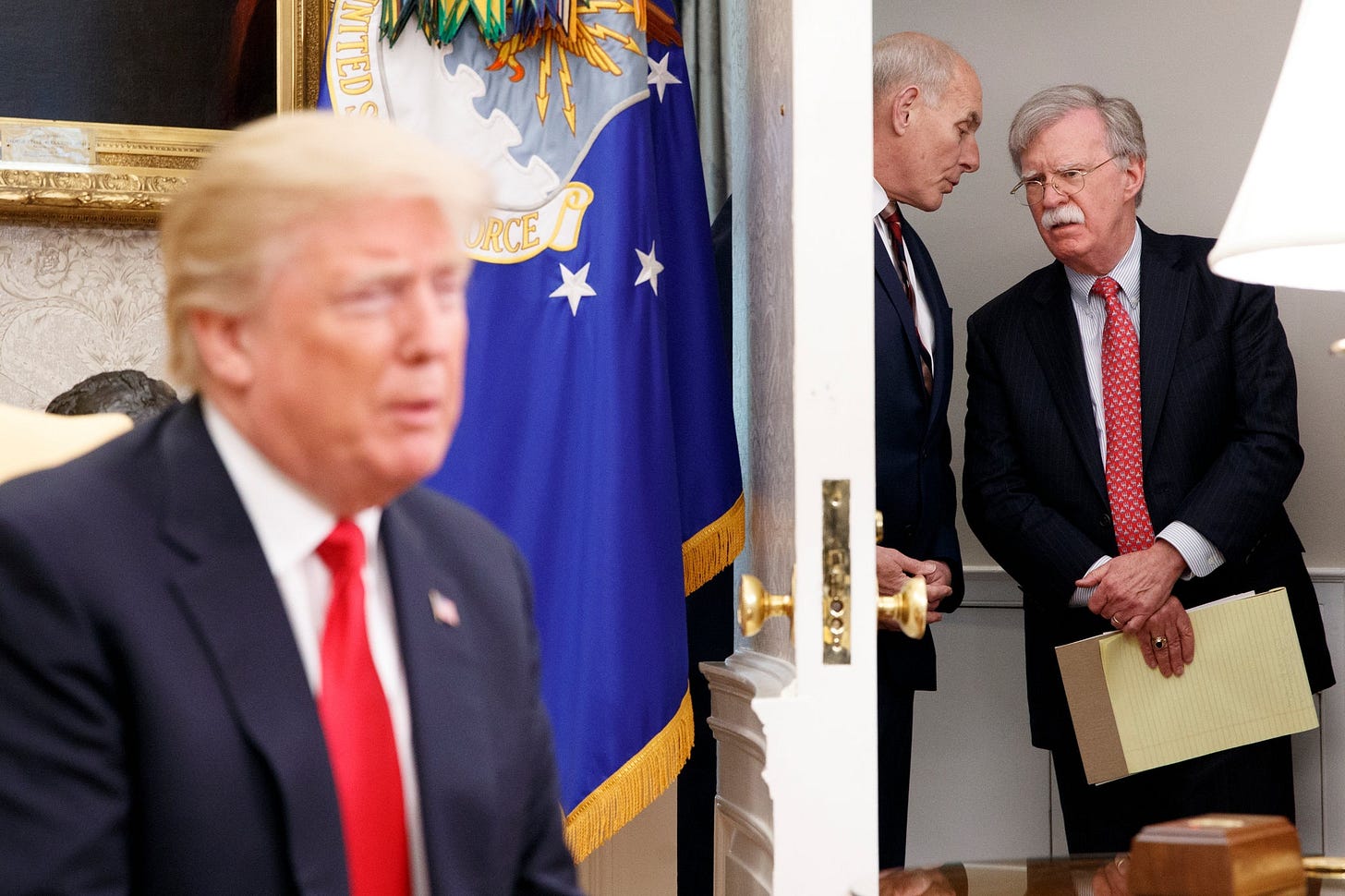Bolton against Iran ‘snapback’
The architect of Trump’s withdrawal from Iran nuclear deal says U.S. should not claim membership in deal it quit in 2018 to impose UN sanctions.

Fascinating.
John Bolton—who Trump chose to be his third national security advisor largely because of his advocacy for how Trump could quit the 2015 Iran nuclear deal—tonight argues that Trump should not try to impose the ‘snapback’ of UN sanctions on Iran.
Bolton, writing in the Wall Street Journal Sunday, argues Washington can’t quit the Iran deal, formally known as the Joint Comprehensive Plan of Action (JCPOA), as Trump did in May 2018, then claim membership now for the purpose of trying to force the UN Security Council to impose sanctions on Iran:
“The agreement’s backers argue that Washington, having withdrawn from the deal, has no standing to invoke its provisions,” Bolton writes. “They’re right.”
“It’s too cute by half to say we’re in the nuclear deal for purposes we want but not for those we don’t. That alone is sufficient reason not to trigger the snapback process. Why afford any American legitimacy to this misbegotten creature? Further, the U.N. Charter allows no vetoes to decide “procedural” questions, and that is how between nine and 13 members may categorize, and thereby stymie, Mr. Trump’s ploy.”
Trump said Saturday that his administration would move to try to impose UN snapback sanctions on Iran next week, after the U.S. failed to persuade the UN Security Council to extend a UN arms embargo on Iran last week. Indeed, only one member of the 15-member Council, the Dominican Republic, joined the United States in voting in favor of its resolution last week, while 11 nations abstained, and two, Russia and China, voted against.
“Well, we knew what the vote was going to be but we'll be doing a snapback,” Trump told journalists at his Bedminister, New Jersey golf club on Saturday. “You'll be watching it next week.”
With the architect of Trump’s withdrawal from the JCPOA now arguing that the United States can’t pursue snapback without jeopardizing its Security Council veto, the Trump administration’s already uphill effort at persuading fellow nations of the legitimacy of its case to pursue snapback just got a lot harder.
Richard Gowan, UN expert at the International Crisis Group, said Washington’s European allies are not feeling very receptive to the Trump administration’s entreaties to respect its procedural right to impose snapback in order to preserve the functionality of the UN Security Council.
“It would be a great argument if the U.S. had not been persistently acting like a spoiler in the Security Council the last few years,” Gowan told Diplomatic. “The U.S. has become harder and harder for the Europeans to work with.”
In the last couple years, the Americans have threatened to veto a German resolution authorizing a UN envoy on climate change, have threatened to veto an extension of the UNIFIL mission in Lebanon, which is of particular concern to the French, and offended the Brits by killing off a ceasefire resolution on Libya, Gowan said.
“The P3”—the three western permanent members of the UN Security Council, the U.S., UK and France—“as it once was is dead,” Gowan said.
(Photo credit: Tom Brenner/The New York Times.)


